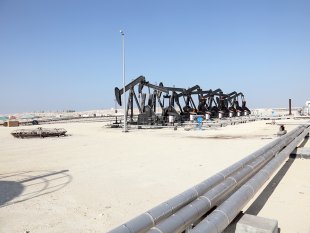
It’s a good question. Unfortunately, the answer is both simple and difficult to reconcile: we can’t defeat ISIS, and even if we could, there will be another group in its place, fueled by the same grievances and objectives but with slightly different branding.
The U.S. has killed no less than a half-dozen al-Qaeda number twos and number ones. From Yemen to Iraq, from Afghanistan to Somalia, the U.S. has proven skillfully adept at taking out the leadership positions of Islamic terrorist groups, but 13 years after 9/11, and after $3 trillion and the deaths of 7,000 U.S. soldiers, the threat against the U.S. is greater than ever.
Despite this extraordinary and focused effort, the question then becomes: why does the threat against the U.S. remain unbeaten? The answer is that our overall foreign policy in the Middle East remains unchanged, and while we remain addicted to the region’s cheap oil, our efforts to arm and fund oppressive despotic regimes will continue.
Much lip service is given to oil and U.S. support of oppressive regimes, but the media and politicians continue to peddle the myth that ISIS and its like are created in a vacuum. Moreover, it’s impossible to underscore how our “arms for oil” strategy has created a permanent majority economic underclass in countries like Saudi Arabia, Yemen and Iraq, an underclass that creates an environment for the criminal class to thrive.
Over the course of the last century we have turned these countries into economic basket-cases in the name of ensuring our own economic self-gain. Oil-rich despotic regimes ask the U.S. to protect them from predatory neighbors. The U.S. sells $55 billion of arms to these countries, thus making them U.S protectorates. In return, the U.S. and its Western allies receive an uninterrupted supply of cheap petroleum.
What do the citizens of these countries receive in return? Nothing. The ruling autocratic elite disproportionately holds the oil revenue, and thus these countries are deprived of funds required for the investment of the common good.
This is not a new phenomenon. The British used this same strategy for turning Middle Eastern states into protectorates the moment British geologists discovered oil in the region during the early 1900s. “The British have a bad reputation for sucking all vitality out of their colonies and protectorates and leaving them economically and socially devastated,” writes Melissa Rossi, author of What Every American Should Know About the Middle East.
The British built the Suez Canal so they could have access to the India and Spice Island. It was British banks that funded the development of the Suez Canal, but when Egypt was unable to repay the high interest rates in 1882, the British stepped in and ran the country as a colony. In turn, money allocated for the development of Egyptian schools and infrastructure was siphoned instead to banks in Britain.
The media denies Americans this contextual understanding that drives the roots of Muslim rage. Last week, the U.S. killed the leader of al-Shabaab in Somalia. War correspondent Jeremy Scahill tweeted, “al Shabaab’s rise doesn’t exist in a vacuum. Nor does ISIS’s rise. The deleting of the US role from this history & media coverage = propaganda.”
Hollywood plays the part of useful propaganda tool, too. The 2001 film Black Hawk Down dramatized the 1993 U.S. mission to capture Somali militia leaders, which killed more than 1,000 Somalis and 18 Americans. The film glorifies the killing of faceless black Muslim terrorists, while at the same time teaching us nothing of Somalia’s actual political history and the hand of the U.S. in its collapse.
In the 1980s, Somalia was a U.S. proxy state. The U.S. funded the country with development aid and the sale of arms. We did so as part of our Cold War effort to defeat the Soviet Union, for neighboring Ethiopia had sided with the Communists. U.S.-backed IMF loans led to the collapse of Somalia’s pastoralist economy, and ultimately high levels of urban unemployment. When the Soviet Union collapsed in 1989, the U.S. withdrew these funds and the economy collapsed. Somalis broke off into clan identities, and the country descended into all-out civil war, and a decade of U.S. arm sales unleashed bloodshed and deeper divisions. To exacerbate matters, the U.S. began arming and funding Ethiopian militias, and it was these militias that inflicted indiscriminate brutality against Somali civilians, which ultimately gave rise to al-Shabaab.
Scahill writes: “Accounts of Ethiopian soldiers slaughtering men, women and children ‘like goats’—slitting throats—were widespread, Amnesty International noted. Both Somali Transnational Government forces, led by exiles backed by the United States, and Ethiopian forces were accused of horrific sexual violence.”
By almost every impartial measure, al-Shabaab qualifies for the title freedom fighter, but the U.S. has labeled it a terrorist group, even though al-Shabaab had never previously made threats against the U.S. “It’s not difficult to see why—in this context—a trickle of young men in the diaspora would be attracted to the idea of answering al-Shabaab’s call for volunteers to defend Somalia from U.S.-backed invaders,” writes Arun Kundani.
The brutal and sadistic beheadings of journalists James Foley and Steven Sotloff have rightfully outraged the U.S. public. But because of our dependence on Middle East oil and the tactics we use to ensure our supply, and because these tactics result in the economic oppression of millions of Muslims, we need to embrace a vulgar truth—vengeful hatred of the U.S. and the executions of Americans on Middle Eastern soil is the cost of doing business.















